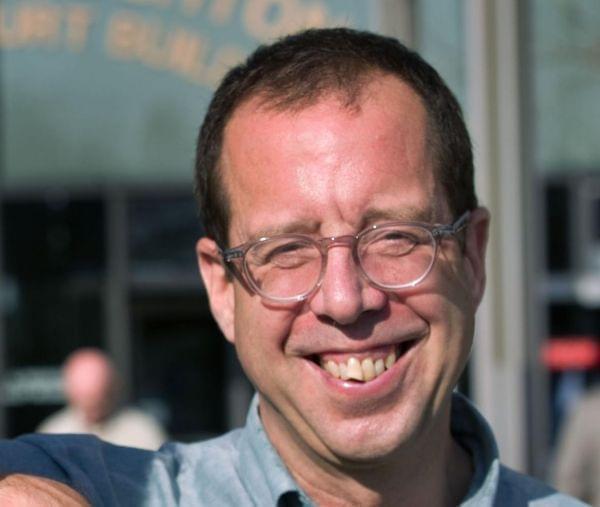Behind The Scenes Of the ‘Betrayed’ Investigation of Chicago Public Schools

David Jackson is part of a Chicago Tribune team that looked into cases of sexual misconduct in the city's public schools spanning a decade. David Jackson
A team of Chicago Tribune reporters looked into cases of sexual misconduct in the city's public schools spanning a decade. Their series 'Betrayed' tells the stories of students abused by educators or other school employees. We talked to David Jackson — one of the reporters involved — about what they uncovered.
David Jackson: We found that the Chicago police had investigated more than 500 reports of sexual assault or abuse of students inside Chicago schools since 2008. And we found separately that the Chicago Public School system had looked at those cases and found, in more than half of them, that the teachers who were responsible were indeed found to — there was credible evidence of abuse or assault.
Daisy Contreras: David, this was an investigation where you and your team had to look at different types of records from arrests, criminal trials, and lawsuit payments by school district, to get an idea of approximately how many students in CPS are victims of sexual violence and abuse in their schools. Why couldn't you just go straight to CPS or the police to get those accurate numbers?
DJ: We met a wall of silence when we began to inquire about this issue in response to our public records requests. But Chicago Public Schools wouldn't tell us how many cases they had, wouldn't tell us any details about the cases. What we did know about the cases, the Chicago Public Schools refused to acknowledge them or provide any records. So finally in April, our lawyers threatened a lawsuit and it was only then that the Chicago Public Schools belatedly began to release some records.
DC: If a teacher or a school official knows or hears about a student being abused by someone, there is a state law that mandates these should be reported, but your investigation found this was often ignored. Other adults knew that students were being abused, but decided to either take matters into their own hands or ignore the allegations. What other key steps did school administrators ignore or overlook?
DJ: Well, Daisy, one of the things, and you're absolutely right, this very clear Mandated Reporter Law was being brushed aside in case after case. But one of the other things that we found was instead of reporting these cases to the proper authorities, what school officials were often doing was sort of taking it upon themselves to play detective. They were interviewing students again and again, which can be very, very — it can muddle subsequent law enforcement investigations. It can also be extremely difficult for victimized students. Beyond that, what we found was that the Chicago Public Schools was not doing proper background checks on many of the perpetrators that we looked at closely. They had prior criminal records — including sex crimes against kids. And we found a host of other breakdowns as well.
DC: And it's this — your team’s in-depth investigation has prompted members of the Illinois General Assembly to file legislation meant to protect kids in schools from predators and to set some preventive measures. Can you explain what this would do in particular?
DJ: Yes. The bill that was filed in response to our series has currently gained 51 cosponsors out of, you know, just over 100 members of the House. So it's got a lot of support. What it tries to do is to essentially eliminate the secrecy that we found around this issue, as well as to strengthen some of the child protective measures. There's also going to be a hearing on this issue, on Wednesday in Chicago, and that will be a chance for some — we understand very angry state lawmakers, to be able to question for the first time officials from the Chicago Public Schools. The school system itself has also begun to take a number of steps here in Chicago.

